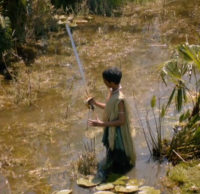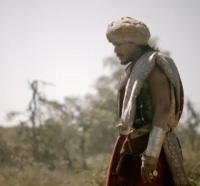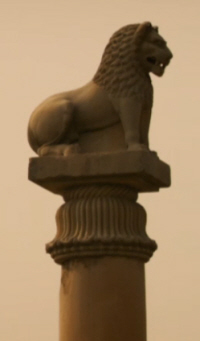Mauryan Empire
Ashoka Maurya
Andrew Marr’s History of the World - Word and Sword

Old Indian writings tell a unique story, a moral revelation which details were virtually forgotten for 2,000 years. One day in 295 BC a young prince called Ashoka was searching for his grandfathers’ sword. His grandfather had built the Mauryan Empire which stretched across northern India. He’d warned the boy that swords were dangerous but, as in all good legends, the boy ignored the old man.
“Ashoka” means without sorrow, and the Prince was true to his name. When his father died he slaughtered his brothers to capture the throne. He then invaded the neighbouring state of Kalinga killing 100,000 men, women and children.
India Emperor

Ashoka had become Emperor of India and he would be remembered, not for the bloodshed but, for his spiritual enlightenment.
Frankly, so far so dull. History is littered with corpses on battlefields and wild-eyed victors. But, this story is rather different. Because, when this victor wandered among the corpses, he didn’t feel wild.
When Ashoka contemplated the devastation that he had caused on the battlefield something seems to have changed inside him. What is this great victory? He said “when a country is invaded, it brings death slaughter and deportation. And it’s not just the soldiers in society. The innocent, the priests, the teachers, the families, the friends also suffer from the violence.”
I can’t think of any other example in history where a great conqueror is not remembered for his victories but for his remorse.
Buddhism

Ashoka went through what’s, perhaps, the most extreme spiritual and political conversion in history. He turned to the peaceful Indian values of Buddhism. Compassion - the alleviation of suffering. As he tried to understand and improve life here on earth.
Ashoka began to transform his Empire. He outlawed slavery, established schools and hospitals. He even had wells dug and trees planted for shade, to help travellers.
Ashoka may have given up military expansion, he certainly wanted to spread his ideas and at his capital city, he created a sort of factory to produce huge stone pillars topped with his lion and inscribed with his laws and views of the world and sent them all over India. This early broadcasting system was completely forgotten, lost to history until Ashoka’s messages where decoded in 1800’s by a young Englishman who cracked the ancient script.

No living things are to be slaughtered or offered in sacrifice. No criticising other religions. Show respect to elders. Towards the poor and distressed, servants and employees.
You could almost call Ashoka’s edicts a declaration of human rights more than 2,000 years before the United Nations. He also sent Buddhist missionaries as far as Vietnam, Sri Lanka and even the Mediterranean.
Today Buddhists are found on every continent on earth. As Ashoka grew old he gave up his earthly power and his possessions. When he died, it said, that only half a mango was left.
Later on, more aggressive religions and political leaders virtually pushed Buddhism out of India. But, Ashoka did a lot more than push. After his rediscovery he became an inspiration in modern India. Ashoka may not be well known in the West but to tens of millions of Indians he is still a symbol of tolerance and pride. He’s been an inspiration for non-violent leaders like Gandhi. Standing for moral, not military might.
But, Ashoka was the exception. 1,000 miles north east of the mauryan Empire another leader relied on the traditional route to power. Violence.
